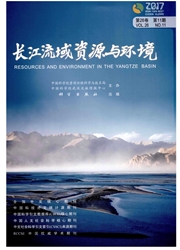

 中文摘要:
中文摘要:
外部性是农地城市流转决策和土地资源配置中需要考虑的重要因素。采用文献回顾法、归纳法对农地城市流转外部性研究进行系统梳理,从外部性测算和考虑外部性的土地配置优化两方面分析评述了国内外研究进展,对其中存在的争议进行了分析并提出了进一步研究的思路。研究发现:近年来我国已经产生了不少有关农地外部性的研究,但对外部性区域划分、线性可加性、决策主体假定、土地异质性、外部性内生等重要问题重视不够,易使测算和配置出现偏差;在评述的基础上,围绕外部性研究需要指导和实现农地-实地配置优化的这一关键目标,讨论了下一步研究的方向和需要解决的问题。
 英文摘要:
英文摘要:
Externality is essential element to decision-making of rural-urban land conversion and land allocation. This paper tries to systematically review literatures on externality of rural-urban land conversion with inductive method. Research progress of the topic was introduced in terms of measurement of externality and land allocation optimization. Meanwhile, some controversial issues were analyzed. Overview on measurement of externality is one aspect of the article. At first, we summarized basic theory of externality measurement and applications of measurement methods. Contingent valuation method,hedonic price method,travel cost method and choice experiment method which are proposed based on consumer surplus theory were introduced and analyzed comparatively from their respective advantages. The applications of above methods in different countries or regions were concluded when influence extent of externalities and additivity of utility function were emphasized. Secondly, since identification of the influence extent is essential process in externality measurement,Loomis(2000) ,Lewis(2007) and Chen(1996)'s researches illustrated methods of extent identification and some results of externality measurement in parcel level. Thirdly, we analyzed the phenomenon that embedding effect caused linear utility function having error in part-whole externality measurement,while solutions included making the assumption of quadratic function or using choice modeling methods. Still, there are flaws in above method to solve the error of embedding effect according to our analysis, which are worthy of attention for Chinese researchers.The other content of the overview is land allocation optimization based on the results of externality measurement. Firstly,due to context difference,we found that the assumption of agents in land allocation model should be improved with Chinese situation because decision makers of rural-urban land conversion in China were local officials instead of private persons. Even there were some literatu
 同期刊论文项目
同期刊论文项目
 同项目期刊论文
同项目期刊论文
 期刊信息
期刊信息
